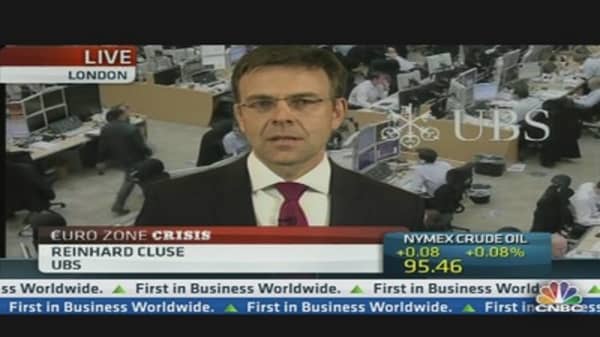The European Central Bank has hit back at suggestions that its mandate should be up for discussion, after Germany's Bundesbank chief said he would welcome a clarification of its room for manoeuvre.
The debate was sparked by two days of legal scrutiny of the ECB's bond-buying plan known as outright monetary transactions (OMT) – its plan to save the euro – by Germany's constitutional court in Karlsruhe.
(Read More: 'Battle Line Drawn' in German Court Over ECB Bond Buying)
Any move to change the ECB's mandate, enshrined in EU law, would almost certainly involve treaty change – a tortuous process likely to provoke alarm in European capitals.
The court was specifically looking into the question of whether the ECB has enough powers to undertake OMT under article 123 of the EU treaty. It is not expected to issue a judgment for some months.
"One should be careful what you wish for," Jörg Asmussen, the ECB executive board member who represented the bank in court, told the Financial Times. "Wishes for a change to article 123 can open a Pandora's box, as there will surely be many wishes regarding the ECB."
He added that the ECB's mandate was "defined in the EU treaty through democratically elected politicians, we only carry it out".
(Read More: Will Germany's Top Court Disarm ECB's 'Big Bazooka'?)
Speaking in court, Jens Weidmann, Bundesbank president, did not directly call for treaty change but said his own definition of the mandate was narrow. Asked by presiding judge Andreas Vosskuhle if he thought it would be sensible for the court to demand that the ECB's mandate were changed to curb its scope of action in policy areas such as OMT, Mr Weidmann indicated that he would.
"The fact that I've taken this position on OMT signals that I am ready to limit this free room because I worry that the use of this free room eventually leads to credibility problems and stability risks," he said.




